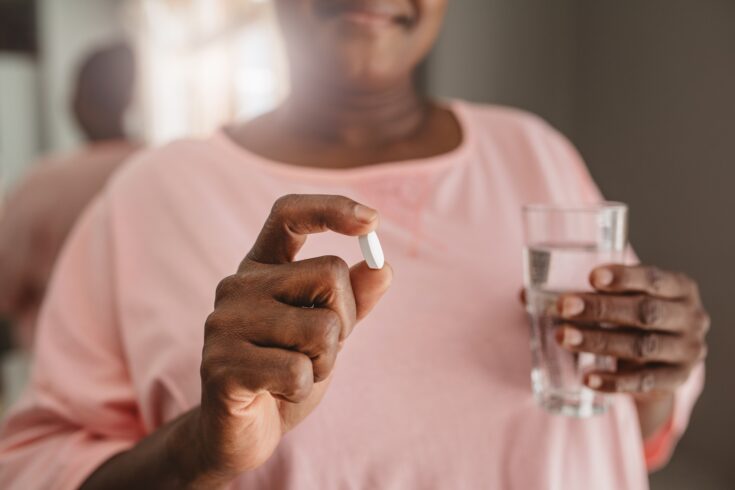A trial has found that the commonly used antibiotics, azithromycin and doxycycline, do not reduce recovery time for COVID-19 patients in the community.
The ‘Platform Randomised trial of INterventions against COVID-19 In older people’ (PRINCIPLE) trial was funded by UK Research and Innovation (UKRI). It is part of the COVID-19 rapid research response from:
- UKRI
- Department of Health and Social Care through the National Institute for Health Research.
Real-time information
To provide real-time information in the pandemic, these preliminary results have been released by the trial. Full results will be made available as a peer-reviewed publication once follow-up and analysis has been completed for all participants.
Azithromycin and doxycycline are two commonly used antibiotics. They were investigated as separate treatments in the trial to see if they might be suitable for use in the community to help people recover more quickly and prevent the need for hospital admission.
Both drugs are being used by some doctors in the hope of treating COVID-19 in the early stages of the illness.
No beneficial effect in patients aged over 50
Interim analyses of both the azithromycin and doxycycline arms of the trial, concluded that there is no beneficial effect in patients aged over 50 who are treated with either antibiotic at home in the early stages of COVID-19. Neither treatment reduced the time taken for people to first report that they feel recovered sufficiently to achieve meaningful clinical benefit.
Professor Chris Butler from the University of Oxford and co-lead of the PRINCIPLE trial, said:
Azithromycin and doxycycline have anti-inflammatory, anti-bacterial and possibly anti-viral effects, and so were considered as potential treatments for COVID-19 in the community.
While we are completing the analysis of the full range of study outcomes, and in different patient groups, our findings show that a three-day course of azithromycin or a seven-day course of doxycycline has no important clinical benefit in terms of the time taken to feeling recovered, and so will not help most patients with COVID-19 in the early stages their illness.
These are two important findings, as both azithromycin and doxycycline have been used for treating COVID-19 in the community even in the absence of suspected bacterial pneumonia, so this practice should now be re-considered – particularly because overuse of antibiotics in the community can fuel the emergence of antimicrobial resistance.
Reducing the use of ineffective antibiotics
Professor Richard Hobbs, from the University of Oxford and co-lead of the PRINCIPLE trial, said:
While it is disappointing that neither azithromycin nor doxycycline speed-up recovery for those with COVID-19 in the community, these are both important findings which will reduce the use of ineffective antibiotics for this illness.
This finding shows the importance of doing rigorous clinical trials in real-world settings before treatments are rolled out on a wide scale. Widespread use of treatment should not be based on laboratory studies and opinion alone. We remain incredibly grateful for the huge efforts from many patients, GP practices and other organisations in delivering this national, flagship primary care study in these challenging times.
Recruitment continues
No further people are therefore being randomised to receive azithromycin or doxycycline in the PRINCIPLE trial. Recruitment into the budesonide arm of the PRINCIPLE trial continues as planned.
The PRINCIPLE trial did not look at the effects of these drugs in patients who were already admitted to hospital with COVID-19. However, in December 2020, the UKRI-supported RECOVERY trial reported no clinical benefit from azithromycin as a treatment for hospitalised patients.
Read more on the PRINCIPLE website.

